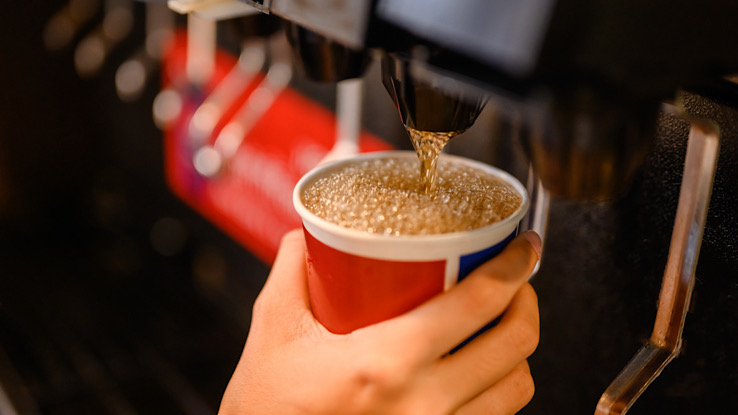
When going on a diet, people try to cut calories in any way possible, including switching from regular soda to diet soda. Assuming that consuming a soft drink with little to no calories can’t be too bad for you.
Many people think that drinking diet soda can help you lose weight, and conversely, many critics say that diet soda can have harmful effects on your health. So what is the truth about diet soda?
Diet Soda Sweeteners
If you look at the nutrition label on a can of soda, you’ll see a long list of ingredients, many of which you may not be familiar with. Here are some of the most controversial elements:
Aspartame
Aspartame is one of five artificial sweeteners the Food and Drug Administration (FDA) approves. Some studies say it can cause brain damage, addiction, and even congenital disabilities. Aspartame raises the level of phenylalanine in the brain. Therefore, people who have phenylketonuria, a genetic disorder, must avoid aspartame.
Phenylalanine
Phenylalanine is the amino acid found in aspartame and is sometimes in diet soda. You should not have phenylalanine if you take some medications for Parkinson’s or neuroleptics. Nor if you have tardive dyskinesia, sleep or anxiety disorder, or a mental health condition.
Caramel
Caramel food coloring is what gives soda its brown color. However, consumer advocate groups have called for the FDA to ban caramel in recent years due to claims that it contains two carcinogens: 2-MEI and 4-MEI.
Benzene
Benzene is a chemical typically found in plastics, dyes, and gasoline and can cause cancer in humans. However, studies from the FDA have found that soft drinks only contain trace amounts of benzene.
The Potential Dangers of Diet Soda
Metabolic syndrome: Metabolic syndrome is typically caused by several health factors like increased visceral fat, high blood pressure, high LDL cholesterol, and high blood sugar. This can contribute to a higher risk of developing heart disease or diabetes. Some studies found that drinking diet soda, or even regular soda, may increase your risk of developing metabolic syndrome.
Weight gain: Aspartame and other artificial sweeteners are linked to weight gain. Studies show that the taste of aspartame tricks the brain into thinking it’s still hungry, and this may increase the appetite and cause people to want more.
On the other hand, many researchers say that it’s not time to put down diet soda just yet. They assert that there isn’t enough evidence to link diet soda to these health problems since there could be other factors causing them.
Metabolic syndrome: Researchers at Duke University say there isn’t enough evidence to support the association between diet soda and metabolic syndrome. The link is only circumstantial, and further research is needed.
Weight gain: Researchers also say there isn’t enough evidence to prove that diet soda causes weight gain. They suggest the possibility that overweight people who are drinking diet soda could be skewing the numbers. They also suggest that people who drink diet soda compensate for the saved calories with other high-calorie treats.
Healthier Alternatives to Diet Soda
There are many organic sodas on the market that contain natural sweeteners and no artificial colors or preservatives. Even though these products are organic, that doesn’t mean they’re great for you. While they are a better alternative to diet soda, they still contain many sugars.
If you’re looking to drop the soda habit altogether, here are a few healthy alternatives that you can try:
- Flavored sparkling water
- Fruit slices and seltzer water
- Juice and seltzer water
- Green tea
- Fruit tea
The Bottom Line
While many suspect that diet soda is terrible for you, more research is needed to prove whether these dangers are actual. Diet soda is certainly not a weight loss supplement, so it’s important to keep consumption at a minimum.
Resource Links:
- “Diet Soda and Sugar-Sweetened Soda Consumption in Relation to Incident Diabetes in the Northern Manhattan Study” via Current Developments in Nutrition
- “Associations of Diet Soda and Non-Caloric Artificial Sweetener Use with Markers of Glucose and Insulin Homeostasis and Incident Diabetes: the Strong Heart Family Study” via European Journal of Clinical Nutrition
- “Sugar Beverages and Dietary Sodas Impact on Brain Health: A Mini Literature Review” via Cureus
- “Sugar- and artificially-sweetened beverages in relation to stroke and dementia – Are soft drinks hard on the brain?” via Stroke
- “Consumption of Diet Soda Sweetened with Sucralose and Acesulfame-Potassium Alters Inflammatory Transcriptome Pathways in Females with Overweight and Obesity” via Molecular Nutrition & Food Research





